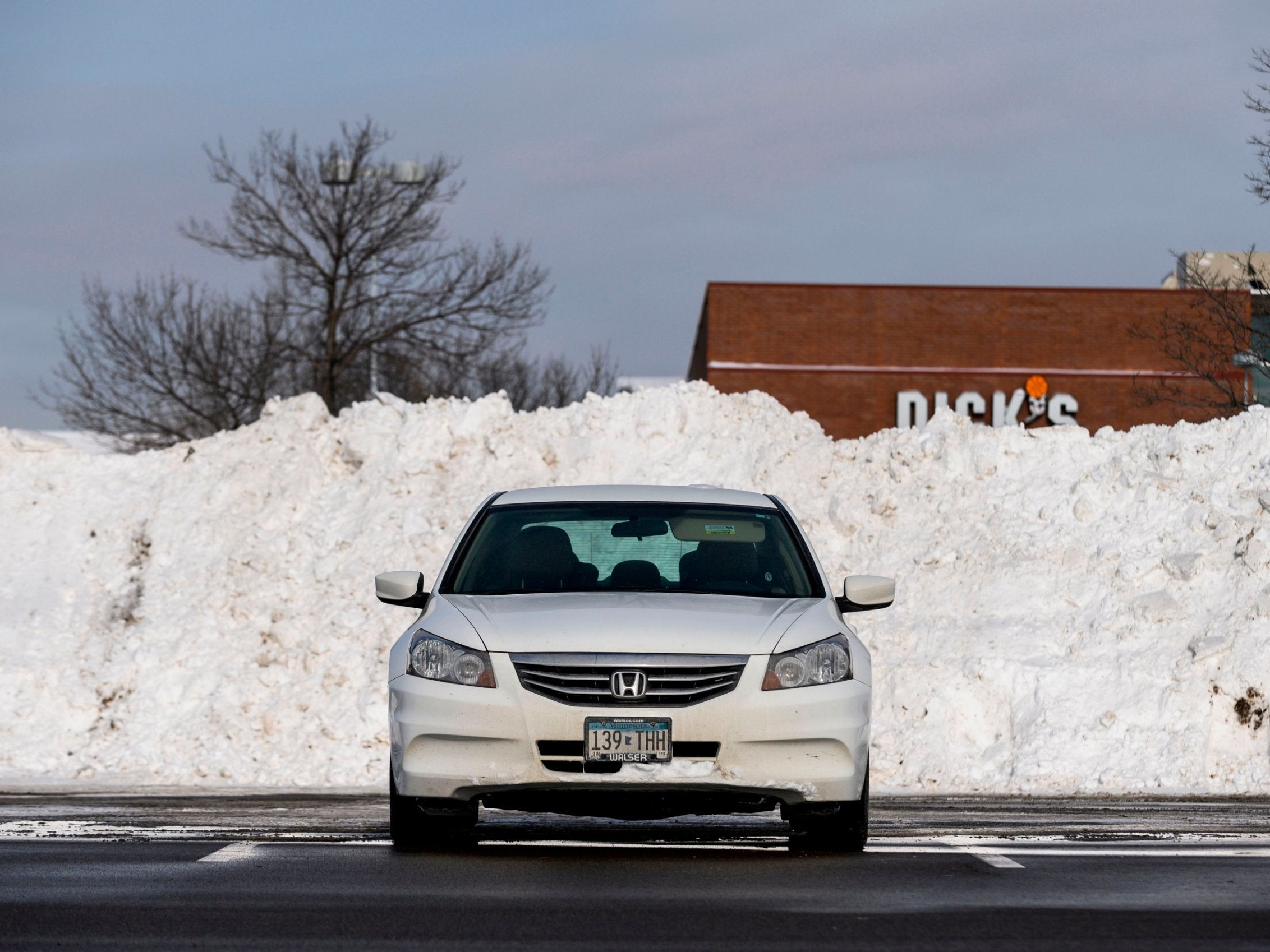US weather latest: Man found 'frozen solid' in backyard among at least 27 to die in extreme cold
Ninety-year-old woman also dies while feeding birds after getting locked out of her house in Michigan
A man found “frozen solid” in his backyard is believed to be one of at least 27 people to have died because of a record-breaking cold snap in the US.
The 62-year-old was discovered outside his home in Cudahy, Wisconsin, on Thursday after colleagues raised the alarm when he failed to turn up for work.
The county’s medical examiner’s office told ABC News the man did not have enough clothes on to be outside as temperatures in the city plunged to -30C with a -40C wind chill on Thursday.
The Midwest’s worst cold snap in two decades was caused by a polar vortex – a reservoir of icy air that usually swirls over the North Pole.
Shifting air currents caused it to slip down through Canada and into the US this week.
More than 40 cold-temperature records were broken on Thursday, the coldest morning since the polar vortex moved in late on Tuesday, carving a swath through the US, from Iowa and the Dakotas across the Great Lakes region and into Maine.
The dangerous weather is thought to have claimed the lives of at least 27 people, including a 90-year-old Michigan woman who died of hypothermia after locking herself out of her home while feeding birds.
The woman, who is also said to have cut herself while trying to break a window to get back inside, was one of at least nine people who were found outdoors.
A motorist also died during a snowstorm on Friday after hitting a salt truck that had pulled off the side of Interstate 70 in central Indiana.
Others died after freezing outdoors or in unheated homes, or while shovelling snow.
Cold temperatures and heavy snow caused deaths spanning eight states as well as hundreds of injuries, including frostbite, broken bones, heart attacks and carbon monoxide poisoning.
In Illinois alone, hospitals reported more than 220 cases of frostbite and hypothermia since Tuesday, when temperatures plunged to -34C and lower – with a wind chill of -45C or worse in some areas.

The cold is said to have eased in the US on Friday, giving way to a mild weekend in areas of the Midwest and Northeast.
In Chicago, where the mercury plummeted as low as -30C earlier this week, temperatures of -5.5C by Friday afternoon felt balmy for most by comparison.
One commuter heading home in just a sweatshirt said it “feels like spring”.

But while these areas thawed out, a fierce winter storm headed towards California, carrying heavy rains and high winds and threatening flooding in the San Francisco Bay Area.
The storm that began moving in on Friday night was expected to bring up to four inches of rain in some areas, winds gusting to 80mph in the mountains, 10-foot waves and several feet of snow in the Sierra Nevada and other mountain ranges.
The National Weather Service issued a flash-flood watch until Saturday morning for the entire San Francisco Bay Area and much of the Central Coast.
Evacuations were ordered or recommended for many areas of northern and southern California that were hit by wildfires in recent months.
Authorities fear that an inch of rain an hour could send fire debris, mud and boulders sluicing down denuded hillsides.
Associated Press contributed to this report
Join our commenting forum
Join thought-provoking conversations, follow other Independent readers and see their replies
Comments
Bookmark popover
Removed from bookmarks